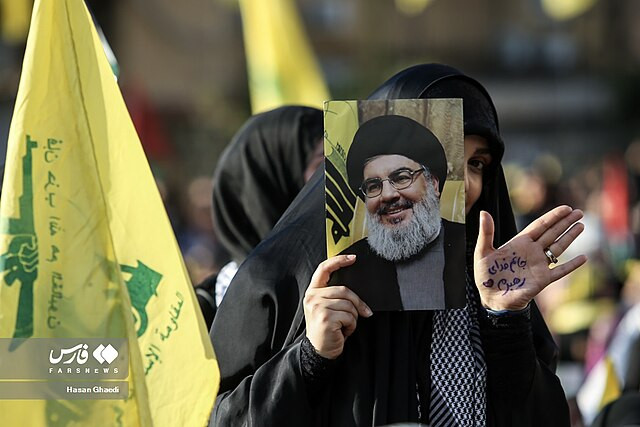Hezbollah's leader, Sayyed Hassan Nasrallah, has issued a stark warning of a war "with no rules and no red lines." This declaration comes amid intensified cross-border exchanges of fire since Israel's conflict with Hamas began in the Gaza Strip. The recent killing of senior Hezbollah commander Taleb Sami Abdullah by an Israeli airstrike has further inflamed the situation.
In a televised address during a memorial service for the slain commander, Nasrallah asserted that "Israel knows very well that no place will be safe from our missiles and drones" if a full-scale war erupts. He emphasized that Hezbollah has acquired new weapons, though he did not provide specifics. According to Seth Frantzman, an adjunct fellow at the Foundation for Defense of Democracies, Hezbollah's arsenal typically includes rockets, anti-tank missiles, and Burkan heavy warhead rockets modeled after the Iranian Ababil drones.
Nasrallah also highlighted the substantial growth in Hezbollah's forces, claiming the group now has over 100,000 fighters. This figure surpasses the Lebanese Army's estimated 80,000 personnel, underscoring Hezbollah's significant influence within Lebanon. The group's political, military, and social sway in the country adds to the complexity of verifying these claims.
Adding a new dimension to the threat, Nasrallah warned the Mediterranean island nation of Cyprus against facilitating Israeli military operations. He accused Israel of conducting war maneuvers in Cyprus, cautioning that such actions would implicate Cyprus in the conflict. "Opening airports for the enemy to attack Lebanon means that Cyprus is part of the war, and we will deal with it as part of the war," Nasrallah stated, according to al-Manar TV.
Cyprus has firmly denied these accusations. President Nikos Christodoulides reiterated that Cyprus is not involved in the conflict and instead seeks to be part of the solution. The Cypriot government has increased defense cooperation with Israel, participating in joint military exercises as recently as May 2023. CNBC has reached out to the Cypriot Ministry of Foreign Affairs for further clarification on the matter.
Nasrallah's threats have heightened tensions, with Hezbollah recently releasing drone footage of Israeli military sites, raising fears of a broader regional conflict. In response, the Israel Defense Forces have indicated readiness for an offensive in Lebanon, though details on the scope and timing remain undisclosed. Israeli Foreign Minister Israel Katz has also signaled that Israel is approaching a critical decision point regarding its stance against Hezbollah and Lebanon.
The potential for conflict has drawn international concern. U.S. envoy Amos Hochstein has been actively engaged in diplomatic efforts, meeting with leaders in both Israel and Lebanon to de-escalate the situation. However, these efforts have yet to yield significant progress.
Hezbollah's capacity to strike at sea was first demonstrated during the 2006 war with Israel when it targeted an Israeli warship in the Mediterranean. Reports suggest that Hezbollah has since acquired advanced Russian-made anti-ship Yakhont missiles from its involvement in Syria, where it supported President Bashar al-Assad during the civil war.
The strategic importance of Cyprus in this conflict cannot be overstated. While the Cypriot government denies any direct involvement, its proximity to Lebanon and existing military agreements with Israel place it in a precarious position. Sovereign British military bases on the island have historically been used for operations in Syria and Yemen, further complicating the geopolitical landscape.




